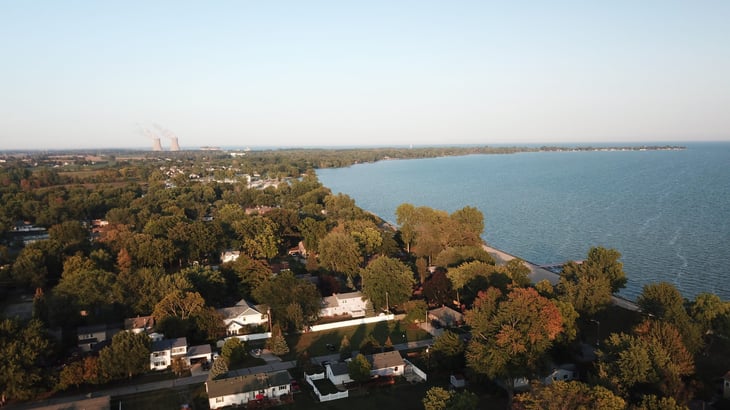
When trying to figure out where to retire, one consideration is how much of your income will be taxed.
Depending on where you choose to live, you might get a state tax credit or deduction on some of your retirement income. Or, you might avoid state taxes on your retirement income entirely.
In fact, the following 26 states either don’t levy state income taxes or don’t tax certain types of retirement income, including Social Security benefits, according to an analysis by the Tax Foundation.
We start with the states that fully exempt Social Security benefits from all residents’ income taxes as of the 2020 tax year — the one for which your return is due in April — and end with a look at the states that have no income tax at all.
Note, however, that just because a state isn’t on this list doesn’t mean all of its residents will owe state taxes on their Social Security benefits.
For example, some states that tax Social Security give exemptions based on factors like age or income, as the Tax Foundation reports. Other states tax Social Security to the same extent that the federal government taxes it — and only about half of Social Security beneficiaries owe federal taxes on their benefits.
1. California

California’s individual income tax rates range from 1% up to 12.3% for residents with a taxable income of up to $1 million, according to the Federation of Tax Administrators. For those whose taxable income is more than $1 million, California levies an additional 1% tax, making the state’s maximum tax rate 13.3%. However, the state excludes Social Security benefits from taxable income.
If you’re considering retiring in California, don’t overlook the city of Palm Desert. Money ranked it No. 2 on its list of the eight best places to retire in the U.S. last year.
2. Indiana

Indiana has a flat personal income tax rate of 3.23%. However, you won’t be taxed on Social Security benefits.
More good news for people considering moving to Indiana for retirement: A 2020 SmartAsset analysis found that it’s the fifth-most affordable state for homebuyers. As SmartAsset explains in “The 10 Most Affordable States to Buy a Home“:
“The Hoosier State has the second-lowest average closing costs in the study, at $2,627. Indiana also is tied for the fifth-lowest median listing price per square foot, at $108. It has the seventh-lowest median listing price overall, at $186,000.”
3. Iowa

Iowa’s personal income tax rates range from 0.33% to 8.53%. But the state does not tax Social Security benefits.
4. Kentucky

Kentucky has a flat personal income tax rate of 5%. However, Social Security benefits are exempt from state income taxes.
5. Maine

Maine’s personal income tax rates range from 5.8% to 7.15%. However, you won’t owe state income taxes on Social Security income in Maine.
6. Maryland

Maryland’s personal income tax rates range from 2% to 5.75%, but the state excludes Social Security benefits from income.
Some possible bad news for retirees: Maryland is the only state in the nation that levies both an inheritance tax and an estate tax.
7. Oregon

In Oregon, the rates for personal income taxes range from 4.75% to 9.9%. Social Security benefits are exempt from state income taxes, though.
8. Pennsylvania

Pennsylvania has a flat personal income tax rate of 3.07%. However, Social Security benefits aren’t taxed.
9. Wisconsin

Wisconsin’s personal income tax rates range from 3.54% to 7.65% as of the 2021 tax year, according to the Federation of Tax Administrators. However, you won’t pay state income taxes on Social Security benefits.
10. Louisiana

Louisiana’s income tax rates range from 2% to 6%. However, Social Security benefits are exempt from state income taxes.
11. North Carolina

North Carolina has a flat income tax rate of 5.25%, but those who receive Social Security benefits won’t pay taxes on that income.
12. Hawaii

Hawaii feels like paradise to many, but residents can expect personal income tax rates ranging from 1.4% to 11%. Some retirement income — like Social Security benefits and employer-funded pensions — isn’t taxed there, though.
The Aloha State also boasts the lowest real-estate property tax burden of any U.S. state, as we recently reported in “10 States With the Cheapest Property Taxes.”
13. Arkansas

In Arkansas, you’ll pay income tax on some of your personal income, at a rate ranging from 2% to 5.9% as of 2021. However, some types of income that retirees may receive are exempt from state income tax. These types of income include Social Security benefits and veterans benefits.
Also, note that some of Arkansas’ income tax rates will fall for the 2021 tax year. The top rate, for example, was 6.6% for 2020.
14. Mississippi

Mississippi taxes personal income at rates ranging from 3% to 5%. However, it does not tax benefits received from Social Security. Additionally, the state notes:
“Generally, retirement income, pensions and annuities are not subject to Mississippi Income tax if the recipient has met the retirement plan requirements.”
15. Michigan

Michigan’s personal income tax rate is a flat 4.25%. However, Social Security benefits aren’t taxed.
Michigan is also one of several states that offers a property tax deferral program for eligible seniors, as we detail in “12 States Where Older Homeowners Can Defer Property Taxes.”
16. New Jersey

New Jersey’s income tax rates range from 1.4% to 10.75%. New Jersey also has the highest real-estate property tax burden of any U.S. state, according to WalletHub.
However, multiple types of income that retirees might receive aren’t taxed. They include Social Security benefits, as well as U.S. military pensions and military survivor’s benefit payments. Additionally, life insurance proceeds received because of a person’s death and employees’ death benefits are exempt from state income taxes.
17. Alabama

Alabama’s personal income tax rates range from 2% to 5%. But multiple types of income that retirees might receive are exempt from state income taxes. Just to name a few examples, Alabama’s Department of Revenue lists the following types of income as exempt:
- Social Security benefits
- U.S. Civil Service Retirement System benefits
- Retirement pay from the military
- Dividends on veterans’ life insurance
- Life insurance proceeds from someone’s death
More good tax news: Alabama has the second-lowest property tax burden of any U.S. state, as we reported in “10 States With the Cheapest Property Taxes.”
18. New Hampshire

In New Hampshire, only income from dividends and interest is taxed, with the tax rate for these types of income a flat 5%. So, as a retiree in New Hampshire, you’ll only pay state income taxes on interest and dividends, with no tax on Social Security benefits.
If you own your retirement home in New Hampshire, though, you can expect to pay the third-highest real-estate property tax burden of any state.
19. Tennessee

In Tennessee, you don’t need to worry about paying taxes on Social Security income or many other types of retirement income, since as of 2020, it was the only state besides New Hampshire that taxes only dividend and interest income.
And as of 2021, it ended that tax, making it one of the handful of states that levies no personal income taxes whatsoever, as we detail in “5 States Lowering Taxes This Year and 2 Raising Them.”
20. Alaska

Alaska is one of the handful of states that levies no personal income taxes at all.
21. Florida

The state of Florida has no personal income tax at all, so retirees pay no state income taxes.
22. Nevada

Nevada can be a great place to retire if you want a warm climate and access to Las Vegas. Plus, it’s one of the handful of states that don’t levy a personal income tax.
23. South Dakota

If you retire to South Dakota, you won’t have to worry about paying income tax at all, since it’s one of the states that doesn’t levy an income tax.
24. Texas

Many things might be bigger in Texas, but the tax bill isn’t one of them. This is one of the states that doesn’t tax any personal income, including retirement income.
25. Washington

In Washington, you don’t have to worry about being taxed on your retirement income. This is one of the states that doesn’t levy a personal income tax on any of its residents.
26. Wyoming

Wyoming is the last of the handful of states that don’t levy a personal income tax. The state also boasts one of the 10 lowest real-estate property tax burdens in the country.






Add a Comment
Our Policy: We welcome relevant and respectful comments in order to foster healthy and informative discussions. All other comments may be removed. Comments with links are automatically held for moderation.